2014 Kellogg School of Management/Aspen Institute Business and Society Leadership Summit #CorpGovGap
Filling the Governance Gap: Aligning Enterprise and Advocacy Feb. 27-28, 2014 | Evanston, Ill.
-

"We're living in an age where business has arguably become the main driver of social, economic and political change in the world. That means businesses are being held accountable for the consequences of this change."
Daniel Diermeier, Faculty Director, Kellogg Public-Private Initiative IBM Professor of Regulation and Competitive Practice Director, Ford Motor Company Center for Global Citizenship
-
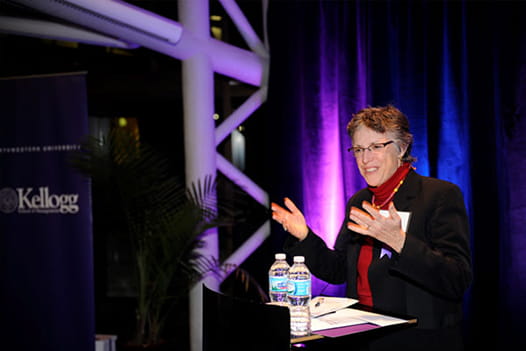
"Companies must know that they will not exist if they don’t have more adaptive and resilient operations, and take a far more active role in policy."
Harlan Loeb, global chair of Crisis & Risk, Edelman
-
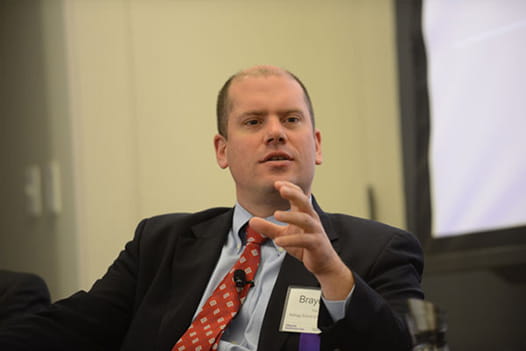
"Activists need the media to broadcast their claims more broadly…What social media can do is create a mini-stage where you can build enough hype that CNN and the Financial Times pay attention."
Brayden King, Associate professor of Management and Organizations, Kellogg School of Management
-
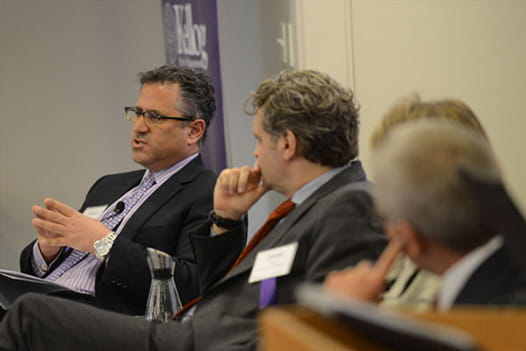
"Companies have to think through the strategy, the operations, the management skills they would need to create a very long term campaign that will ultimately bring good partners to the table. The kind of skills they teach here at the Kellogg School of Management."
Judy Samuelson, Executive Director, Aspen Institute Business and Society Program
-
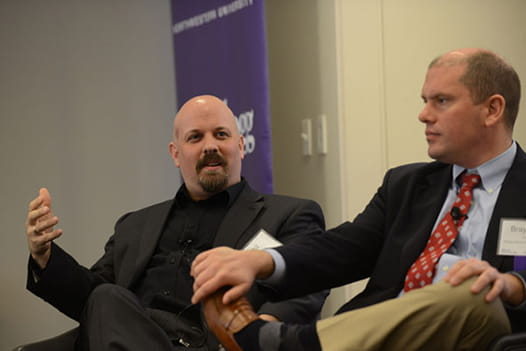
"Companies tell us they’d rather we come through the door, not the roof…but there are times when we have to give corporations a near-death experience."
Phil Radford, Executive Director, Greenpeace USA
-
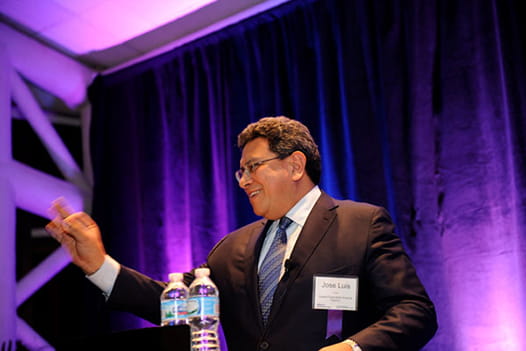
Jose Luis Prado, President, Quaker Foods North America, opened up the summit with his keynote remarks.
Thinking about the governance gap
When it comes to regulation, the tension among corporations, advocacy groups, and other NGOs offers no easy answers. But the Kellogg-Aspen Business in Society Leadership Summit created stimulating discussions with experts — and an engaged audience — who looked at the problem from all sides. This is what the Kellogg Public-Private Initiative is dedicated to: leading the discussion. We hope you will enjoy viewing content from the 2014 summit on this page, and join the conversation.
Daniel Diermeier
IBM Professor of Regulation and Competitive Practice
Director of the Ford Motor Company Center for Global Citizenship
Faculty Director, Kellogg Public-Private Initiative
Sheila Duran
Senior Director, Kellogg Public-Private Initiative
Videos
This is Player 1
Daniel Diermeier explains the significance of the issue to be addressed in this year's Business and Society Leadership Summit.
This is Player 2
Brayden King discusses private regulation, the focal point of the upcoming Business and Society Leadership Summit, "Filling the Governance Gap: Challenges and Opportunities of Aligning Enterprise and Advocacy."
This is Player 3
Caroline Kaeb discusses the regulation of global commerce, the focal point of the upcoming Business and Society Leadership Summit, "Filling the Governance Gap: Aligning Enterprise and Advocacy."
This is Player 4
Globally operating NGOs are one of the key drivers of private regulation. This panel brings together leading NGOs with academic experts to discuss the growing impact of NGOs on corporate conducts and its social and economic consequences.
This is Player 5
Companies are increasingly asked to assume the role of governments. The rise of social media, globalization, and ever increasing expectations of companies has created new business challenges for globally operating companies. This panel features corporate and academic experts analyzing the rise of private governance and its implications for global commerce.
This is Player 6
T.J. Whalen, Chief Strategy & Sustainability Officer, Green Mountain Coffee Roasters, shares his company's perspective on responsible business practices.
This is Player 7
Jim Rogers, Retired Chairman of the Board and CEO, Duke Energy is interviewed by Judy Samuelson, Executive Director, Aspen Business and Society Program
This is Player 8
Private solutions to public problems create new governance challenges ranging from legal implications to questions of legitimacy. This panel of experts investigates the challenges of designing and implementing private governance solutions.
